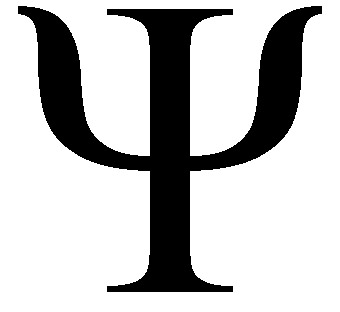Are you looking smart in your new glasses? An examination of glasses and intelligence.
With the entrance of Sarah Palin onto the national political scene came an unusual question; does Sarah Palin truly need corrective lenses or does she wear glasses unnecessarily to appear smarter? Regardless of where you fall on the political spectrum between liberalism and conservatism, the buzz surrounding Palin’s “real” or “fake” glasses brings up some interesting questions.
Do we view people who wear glasses as smarter (more intelligent) than those who do not?
Scientific research has shown that we do perceive people who wear glasses as more intelligent when compared to those who do not wear glasses (1,2) (As an aside, we also view people who wear glasses as more competent (3), and more industrious (1,2). Furthermore, even young children believe that other children appear smarter when wearing glasses (4), not to mention more honest as well (4).
Is it true? In television, movies, and even cartoons, the smart character is often portrayed wearing glasses. Have we been conditioned as a society to view people who wear glasses as smarter through all of these media outlets or is there actually truth behind this assumption?
Are people who wear glasses smarter on average than those who do not?
Studies have shown a correlation between myopia (nearsightedness) and intelligence (5, 6). Though there does appear to be some sort of connection, the issue continues to be debated by experts studying the relationship. Is it that there is some genetic link that leads people to develop myopia and also greater intelligence? Or could this difference be attributed to something in the environment? An opposing theory is that more intelligent people engage in activities more frequently that can affect eyesight. For instance, do intelligent people spend more time reading and develop myopia as a result? These questions continue to arise as the topic is explored further in the research. So, it seems, there may be something to the image of the class whiz kid wearing glasses. We just are not sure quite yet of how to characterize the connection.
Does wearing glasses make someone feel smarter?
In light of all of these findings, is it possible to feel smarter by just putting on a pair of glasses? It seems so. Research has shown that when wearing glasses people think they perform better on tests of intelligence than when not wearing glasses (7). People also describe themselves as more scholarly and competent when wearing glasses (7).
The bottom line . . . You may be looking quite smart in your new pair of glasses and not just from a fashion perspective.
References:
1. Thornton, G. (1943). The effect upon judgments of personality traits of varying a single factor in a photograph. Journal of Social Psychology 18, 127–148.
2. Thornton, G. (1944). The effect of wearing glasses upon judgments of personality traits of persons seen briefly. Journal of Applied Psychology, 28, 203–207.
3. Terry, R. L. and Krantz, J. H. (1993). Dimensions of trait attributions associated with eyeglasses, men’s facial hair, and women’s hair length. Journal of Applied Social Psychology 23, 1757– 1769.
4. Walline, J. J., Sinnott, L.. Johnson, E.D. Ticak, A. Jones, S. L., Jones L. A, What do kids think about kids in eyeglasses? Ophthalmic & Physiological Optics: The Journal Of The British College Of Ophthalmic Opticians (Optometrists) May, 28 (3), 218-24.
5. Cohn, S. J. Cohn, C. M. G, Jensen, A. R. (1988). Myopia and intelligence: a pleiotropic relationship? Human Genetics, 80 (1), 53-58.
6. Rosner, M., & Belkin, M. (1987). Intelligence, education, and myopia in males. Archives of Ophthalmology, 105, 1508-1511.
7. Kellerman, J. M., Laird, J.D. (1982). The effect of appearance on self-perceptions. Journal of Personality, 50(3), 296-316.
—N. Jung


